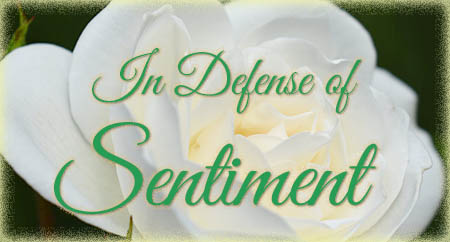
by
D. PATRICK MILLER

by
D. PATRICK MILLER
In my second and last year of college, I was afforded a bizarre opportunity of total academic freedom that might seem, at first glance, to be the dream of any young student. Enrolled at the University of North Carolina at Charlotte (UNCC) which, at that time, had been certified as a university for only a few years, I dropped my freshman psychology major to enroll in the new & innovative Bachelor of Creative Arts (BCA) program. Holding to the most fantastic ideal of the responsibility of kids entering their 20s, the experimental BCA program gave total license to its enrollees — with no established curriculum, no scheduled classes, and no grades save the evaluations of a peer group each semester.
Theoretically, we were all supposed to apply ourselves to the full range of creative opportunities available in the program, sampling the dance, theater, sculpture, graphic arts, and literary programs at will within the confines of a brand-spanking-new arts building. But you didn’t have to be anywhere at any particular time, attend any required classes, write any papers, or take any tests.
This meant that everyone in the program did pretty much whatever they felt like, which included a lot of goofing off. Having absolutely no skills or instincts in theater, sculpture, or the graphic arts, I applied myself fully to the Creative Writing program – which came with a little hitch. Because the BCA program had been rather hastily assembled, there was no Creative Writing faculty exclusively assigned to help a handful of budding authors find and nurture our talents.
Instead, we would-be writers were told to go haunt the English department and find a professor there to advise us. I spent a frightful day wandering the English halls, wanly asking one instructor after another, “Will you be my advisor?” before getting a tired and colorless affirmation from a professor whom I will henceforth refer to as Professor Mist.
Truth be told, Professor Mist was never much help. More than once I remember knocking on his office door at the end of a long day of attempting to goof off – desperately seeking attention, insight, and wisdom — only to find him slumped over his desk, his Shakespearean locks spread across a pile of ungraded English papers, snoring softly. I just couldn’t bring myself to interrupt his naps in order to ask stupid questions like, “What the hell am I supposed to do with my life?”
So I did what came naturally: I just read and read and read, and occasionally wrote a little something that I invariably hated, meaning I wrote less and less as the year progressed. Following my chaotic literary instincts, I began reading the Romantic poets, chiefly Coleridge, Southey, and Wordsworth, before taking an abrupt turn into the great suicidal poets Plath and Sexton, before settling down for the rest of the academic year in the voluminous works of Anaïs Nin and Henry Miller, whose lives and literary legacies were famously entangled.
It is no mean feat to read a good chunk of Nin’s diaries and all her novels, and most of Miller’s fiction and superb nonfiction, in about one and a half college semesters. I managed it because frankly, I had nothing else to occupy my time. Goofing off was not my forté. I remember being very nervous before my first peer evaluation because I had not dipped a toe into any of the other arts programs like I was supposed to, but I needn’t have worried. My reading list so wowed my peers – all of whom had more prowess at goofing off – that I was given lots of “Excellents,” which was more or less an A+ in the dreamy realm of the BCA program. Professor Mist even showed up for the Creative Writing evaluations, because he had to, and sleepily affirmed my surpassing achievements by glancing at my reading list and mumbling, “That’s great!”
On the face of it, this was not an auspicious academic kick-start to my writing career.
And yet, and yet… I can trace the foundations of my literary life to that early, very spacy year of absorption in the words of great talents, particularly Nin and Miller. That’s because what I learned from them is that the most powerful writing derives from the marriage of feeling and intellect, rather than the supremacy of either.
There is a much-dissed word in the English lexicon that defines this marriage, and that word is “sentiment.” Although we tend to think of sentiment as what’s behind the cloying aroma of Hallmark card-style sentimentality, it is actually rooted in the synthesis of feeling and sensation (senti) with thought (ment). Or as Merriam-Webster puts it, sentiment is “an attitude, thought, or judgment prompted by feeling.”
That definition is a little dry. But to me, fully developed sentiment is the compelling force of memorable writing. I think that the greatest intellect is fed by torrents of feeling, and the best writers skillfully manage the synthesis and ongoing feedback of both energies into each other.
I can’t quote Henry Miller or Anaïs Nin at length to prove my point – since we’d be here all semester — so I’ll have to make do with two brief excerpts. First, what I consider one of the great fiction openings in American literature, which is Miller’s start for his novel Sexus:
It must have been a Thursday night when I met her for the first time – at the dance hall. I reported to work in the morning, after an hour or two’s sleep, looking like a somnambulist. The day passed like a dream. After dinner I fell asleep on the couch and awoke fully dressed about six the next morning. I felt thoroughly refreshed, pure at heart, and obsessed with one idea – to have her at any cost. Walking through the park I debated what sort of flowers to send with the book I had promised her (Winesburg, Ohio). I was approaching my thirty-third year, the age of Christ crucified. A wholly new life lay before me, had I the courage to risk all. Actually there was nothing to risk: I was at the bottom rung of the ladder, a failure in every sense of the word.
Compare that to a passage from A Journal of Love: The Unexpurgated Diary of Anaïs Nin, 1932-34:Henry is working on his Self-Portrait. He is sunburned. He wants to come and live near me and near the printing press. He is absorbed in work. He works and he pampers me too, and I sit here making plans, dreaming. He needs
independence, freedom of expression to be able to expand. I, too, am making plans for greater independence. Henry and I will take long trips together. We want to go to India. Henry urges me to do all I want – what I could be if I could expand without limits! Urges me to run away from Hugh and from him, to run loose. He talks impersonally, exalting himself about my potentialities. But I smile. I could never run away from my feelings, my feelings that life is not liberty but love, and that love is bondage, and that no expansion could mean anything if three or four human beings had to be sacrificed. It is I who create the bonds, the walls, the loves, the devotions which encircle me. It is I who direct my life into channels of subjections to Hugh, to Henry, to Joaquin, to smaller loves.
Perhaps I'm being nostalgic, but I don’t know that American literature has soared to greater heights of transformative sentiment than Nin and Miller achieved almost a century ago. They both exhibited a vulnerability and sense of risk that seem rare in today’s literary landscape. While they were both regarded as scandalous in their time for their forays into frank eroticism and emotional revelation, what really distinguished each of their literary gifts was their surpassing intellect – which I don’t believe they could have achieved without the courage to fully explore and express feeling.
By now, of course, you’re probably wondering whatever happened to Professor Mist, and that leads us to a mildly amusing postscript. Some years ago when I was married to the successful literary agent and accomplished novelist Laurie Fox – long before I became an agent myself – Laurie received a query for a novel from an aging professor at UNCC. I remember her coming to me with a puzzled look and saying, “Do you know this guy? Says he’s an English professor from your university.”
Sure enough, it was Professor Mist.
“Wow!” I exclaimed, “that’s my Creative Writing advisor. What do you think of the query?”
Laurie winced and murmured, “Umm… well… he’s your professor, so why don’t you give it a look before I answer him?”
So I took a look. While I don’t know what eventually happened to Professor Mist, or whether he now inhabits an even dreamier realm than the Bachelor of Creative Arts program, I hope he’s still enjoying an excellent nap.
Copyright 2021 by D. Patrick Miller. All rights reserved.
You can support the writing of feature stories like this one:
HOME • BOOKS • FEATURES • STAY IN TOUCH
